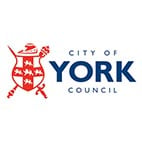Stop animation

We make software that helps deliver critical services for citizens all around the world.
Over 5,000 public bodies globally use our software to help provide critical services to over 100 million citizens. From local government to central government, to education, to health and care, we are a global GovTech champion, helping to serve citizens.
1,500
councils & local authorities
2,000
care providers & commissioners
3,000
schools, colleges & libraries
Sectors we serve

Local Government
Across local authorities, our software helps drive improved outcomes for your workforce and the citizens you serve.

Health & Care
Improved patient outcomes, cost efficiency and workforce planning & productivity, sit at the heart of our health and care software.

Education
Supporting teaching and student outcomes, our software helps save time and money across schools, academies, colleges and libraries.
Our cross sector capabilities

We really appreciated the open mindedness with which Civica approached the project. They didn’t push an agenda, they simply wanted to help us work out the best solution for our user’s needs."
Our customer stories
Our latest news & insights
Connect to the future
In volume 5 of our award-winning Perspectives* series, we team up with Amazon and public sector leaders to explore the potential of connected devices.
So, strap yourself in as we push past 88mph and help public services connect to the future.
Find out more































